[:en]
October 2020 was the 10th anniversary of International Open Access Week. Celebrations took place amidst the COVID-19 pandemic which made access to physical libraries difficult for many users. International Open Access Week is an annual global event that seeks to broaden awareness and understanding of the importance of open access to scholarly research. It seeks to ensure that scholarly research and accompanying data is published on platforms that make it freely accessible to the user. The theme for this year’s Open Access Week was “Open with Purpose: Taking Action to Build Structural Equity and Inclusion”. It is a theme that focused on the urgent need for action regarding information equity, representivity and inclusion.
The Library and Information Service (LIS) of Stellenbosch University (SU) did not let the COVID-19 crisis dampen its spirits. A number of activities were undertaken in celebration of this week.
Promotional material and plasma slides were prepared and presented throughout the week by Digital Scholarship staff. The exhibition and slides aimed to raise awareness and understanding about the Library’s open access (OA) activities.
A social media OA awareness campaign was run. The Library’s Facebook and Twitter accounts were used to share information about OA and its importance to library users especially while the COVID-19 crisis prevails.
A video, Open access initiatives at Stellenbosch University Library and Information Service was created and flighted on the Library website and social media. The video highlights the SUNScholar institutional repository and the Library’s open digital heritage repository, SUNDigital Collections, which showcases the Library’s special collections. SUNScholarData too, is featured.
Additionally, Ms Ellen Tise, Senior Director of the LIS, was invited to speak at the OA event of the University of the Western Cape Library Services. In her presentation, Ms Tise highlighted the OA initiatives of the LIS of SU and their impact. The initiatives include electronic theses and dissertations, digitisation of scholarly articles, digitisation of special collections content, and the digitisation of research data.
Siviwe Bangani
Editing: Bronwyn Bruton[:]
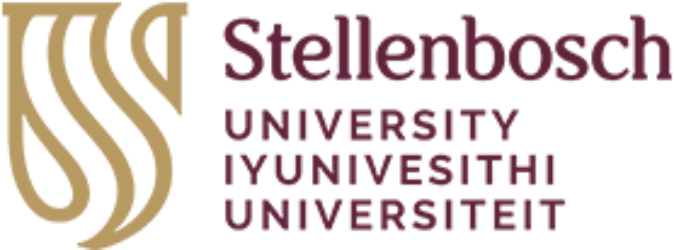
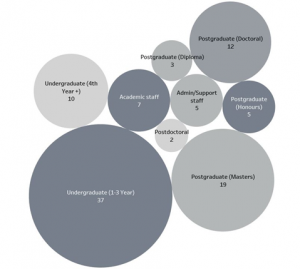 Client type of respondents, as a percentage
Client type of respondents, as a percentage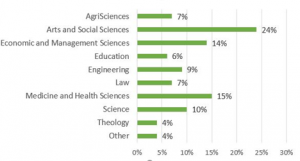 Survey respondents by faculty, as a percentage
Survey respondents by faculty, as a percentage Update on Course Reading Lists
Update on Course Reading Lists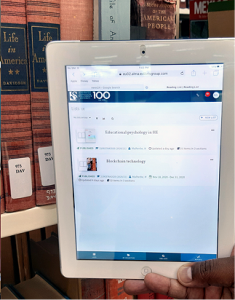 Leganto® allows lecturers to include diverse content from the Library and elsewhere, such as books, articles, open educational resources, websites, streaming media, digitised content and course notes, in a single list. In doing so, Course Reading Lists adds both print and electronic materials to the same lists and shows the real-time availability of both. Student usage reports are also available to help lecturers determine how effective their reading lists are and what materials students engage with most, through views, comments and likes.
Leganto® allows lecturers to include diverse content from the Library and elsewhere, such as books, articles, open educational resources, websites, streaming media, digitised content and course notes, in a single list. In doing so, Course Reading Lists adds both print and electronic materials to the same lists and shows the real-time availability of both. Student usage reports are also available to help lecturers determine how effective their reading lists are and what materials students engage with most, through views, comments and likes. Students access Course Reading Lists from within their course in SUNLearn. They can interact with their lists by marking citations as read and liking those citations which they enjoy. If enabled by the lecturer, students can view upcoming due dates by when material needs to be read and can partake in student discussions on their lists. This new integrated course reading system comes at a time when students need to engage more with their lecturers through the SUNLearn system.
Students access Course Reading Lists from within their course in SUNLearn. They can interact with their lists by marking citations as read and liking those citations which they enjoy. If enabled by the lecturer, students can view upcoming due dates by when material needs to be read and can partake in student discussions on their lists. This new integrated course reading system comes at a time when students need to engage more with their lecturers through the SUNLearn system.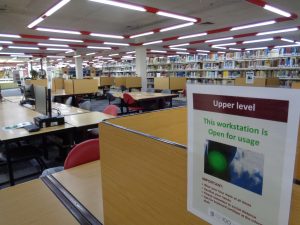 Update on Library services
Update on Library services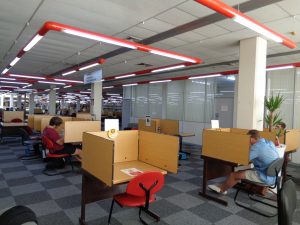 SU Library service
SU Library service
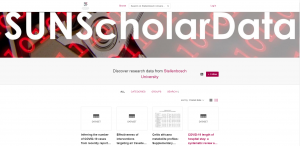
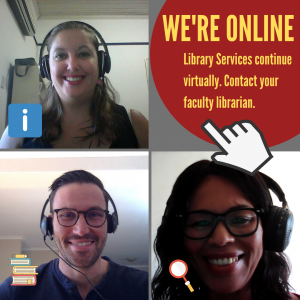
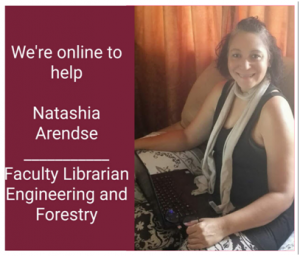 When Covid-19 lockdown kicked in, the situation drastically changed and suddenly librarians were forced out of their comfort zones. Ice-cream floats started to melt. Not for long though… Training for the 2020 academic year was an ongoing concern, because SU management was adamant that the 2020 academic year would be completed successfully. Librarians therefore had to step up, adapt and create new comfort zones using online collaboration tools such as Microsoft Teams.
When Covid-19 lockdown kicked in, the situation drastically changed and suddenly librarians were forced out of their comfort zones. Ice-cream floats started to melt. Not for long though… Training for the 2020 academic year was an ongoing concern, because SU management was adamant that the 2020 academic year would be completed successfully. Librarians therefore had to step up, adapt and create new comfort zones using online collaboration tools such as Microsoft Teams.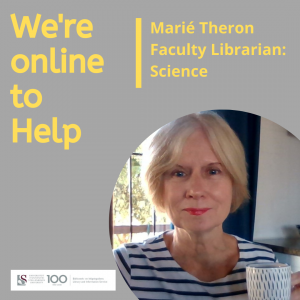 Faculty librarians quickly learned the Teams tools of the trade and learnt a valuable lesson along the lockdown route: find a library buddy to assist you with technical challenges such as log-in problems, connecting latecomers and answering chat questions during Teams training sessions. Ice-cream floats to all trainers during lockdown.
Faculty librarians quickly learned the Teams tools of the trade and learnt a valuable lesson along the lockdown route: find a library buddy to assist you with technical challenges such as log-in problems, connecting latecomers and answering chat questions during Teams training sessions. Ice-cream floats to all trainers during lockdown.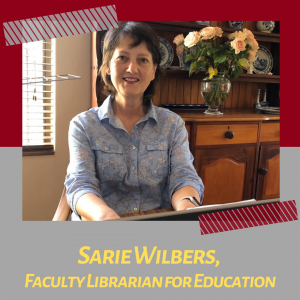 Client assistance meltdown averted
Client assistance meltdown averted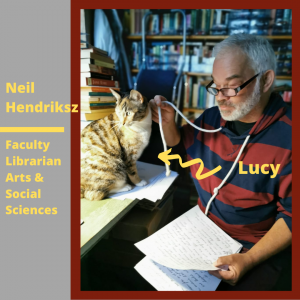 Fortunately, faculty librarians’ service commitment went into overdrive: support your clients by whatever means necessary (within the law, of course). Call it over-servicing or assisting, but desperate times call for desperate measures. Faculty librarians had to ensure the clients’ 2020 academic year stayed afloat. Practical example: With support from Technical Services, clients received access to new e-books at the speed of lightning. Ice-cream floats to the Technical Services colleagues.
Fortunately, faculty librarians’ service commitment went into overdrive: support your clients by whatever means necessary (within the law, of course). Call it over-servicing or assisting, but desperate times call for desperate measures. Faculty librarians had to ensure the clients’ 2020 academic year stayed afloat. Practical example: With support from Technical Services, clients received access to new e-books at the speed of lightning. Ice-cream floats to the Technical Services colleagues.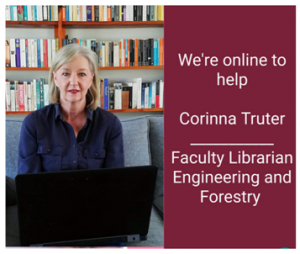 Library access meltdown averted
Library access meltdown averted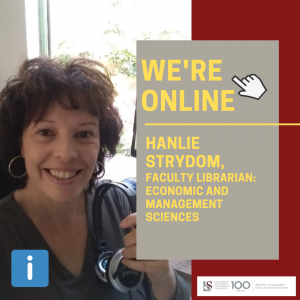 The circulation staff were crucial to welcome our clients back and ensure everyone’s safety in the libraries. The circulation staff all deserve ice-cream floats for their professional, patient, and friendly (but firm) welcoming of returning clients to the libraries.
The circulation staff were crucial to welcome our clients back and ensure everyone’s safety in the libraries. The circulation staff all deserve ice-cream floats for their professional, patient, and friendly (but firm) welcoming of returning clients to the libraries. It just goes to show what great teamwork can accomplish.
It just goes to show what great teamwork can accomplish.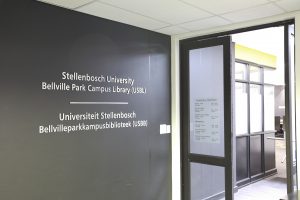
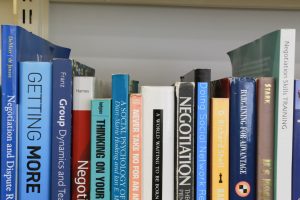 need to submit a list of the books to the circulation desk (contact details in above notice) before visiting the library. They will be contacted when the books are ready and the circulation staff will book a time for them to collect the books.
need to submit a list of the books to the circulation desk (contact details in above notice) before visiting the library. They will be contacted when the books are ready and the circulation staff will book a time for them to collect the books.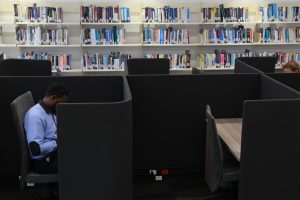 Clients are welcomed back to the libraries for study and research purposes. We are here to support you to successfully complete your academic year.[:]
Clients are welcomed back to the libraries for study and research purposes. We are here to support you to successfully complete your academic year.[:]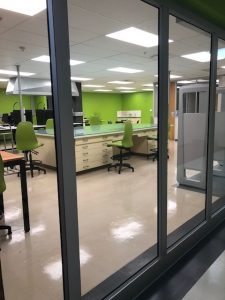 Much progress has been made on the new Makerspace area in the Stellenbosch University Library. January 2021 is the new date that clients can look forward to the opening of this service. The Makerspace will support research creativity and innovation, drawing together students with ideas and those with the technical skills to turn them into reality.
Much progress has been made on the new Makerspace area in the Stellenbosch University Library. January 2021 is the new date that clients can look forward to the opening of this service. The Makerspace will support research creativity and innovation, drawing together students with ideas and those with the technical skills to turn them into reality.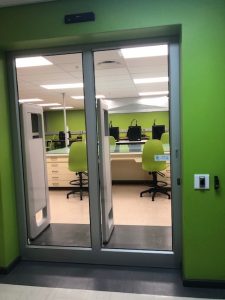
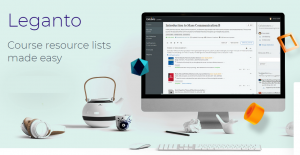 By implementing Leganto the Library aims to proactively assist lecturers to create and maintain course readings by adding both print and electronic materials to the same list and showing real-time availability of both. It will assist lecturers in their blended learning offering for the modules for which they are responsible by embedding reading lists as a component of lecturer workflows and not as a separate system that the lecturer needs to access. As described in the application to the SU Strategic Fund, after 1 December 2020 the adoption process will continue into 2021 for full adoption across all possible modules by 2023.
By implementing Leganto the Library aims to proactively assist lecturers to create and maintain course readings by adding both print and electronic materials to the same list and showing real-time availability of both. It will assist lecturers in their blended learning offering for the modules for which they are responsible by embedding reading lists as a component of lecturer workflows and not as a separate system that the lecturer needs to access. As described in the application to the SU Strategic Fund, after 1 December 2020 the adoption process will continue into 2021 for full adoption across all possible modules by 2023. Mr Siviwe Bangani was appointed as Director: Research Services in the Library and Information Service, SU, from 1 April 2020. Siviwe previously worked at the North-West University Library and Information Service as a Manager: Information Services (Mafikeng Campus). Siviwe was the 2018 LIASA Librarian of the Year. At the time of joining SU, he was the chair-elect of the LIASA North-West Branch.
Mr Siviwe Bangani was appointed as Director: Research Services in the Library and Information Service, SU, from 1 April 2020. Siviwe previously worked at the North-West University Library and Information Service as a Manager: Information Services (Mafikeng Campus). Siviwe was the 2018 LIASA Librarian of the Year. At the time of joining SU, he was the chair-elect of the LIASA North-West Branch. Mr Norman Hebler was appointed as Junior Librarian: Information Literacy and Learning Commons with effect from 1 December 2019. Norman is originally from Limpopo and studied at the University of Pretoria for his BA. After working in the UK, he came to Cape Town where he worked in the private sector. Thereafter, he joined Library IT at UCT Libraries where he worked for 10 years before joining SU.
Mr Norman Hebler was appointed as Junior Librarian: Information Literacy and Learning Commons with effect from 1 December 2019. Norman is originally from Limpopo and studied at the University of Pretoria for his BA. After working in the UK, he came to Cape Town where he worked in the private sector. Thereafter, he joined Library IT at UCT Libraries where he worked for 10 years before joining SU. Mr Sarfaraz Mohamed was appointed as Linux Systems Administrator with effect from 1 July 2020. Sarfaraz previously worked in the ICT Division at SU in the Linux Team. He has worked on various projects from SUNLearn to security and vulnerability patching. His role is to manage the Linux infrastructure at the Library and to maintain and improve the overall Linux systems.
Mr Sarfaraz Mohamed was appointed as Linux Systems Administrator with effect from 1 July 2020. Sarfaraz previously worked in the ICT Division at SU in the Linux Team. He has worked on various projects from SUNLearn to security and vulnerability patching. His role is to manage the Linux infrastructure at the Library and to maintain and improve the overall Linux systems.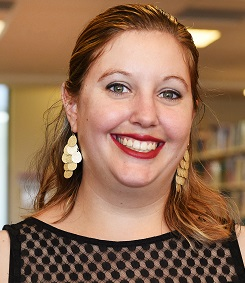 On Thursday 21 May, Elizabeth Moll-Willard (Faculty Librarian: AgriSciences) presented part of a webinar titled “Setting students up for success with science literacy”. Elizabeth spoke about creating a self-directed course for postgraduate students to equip themselves with essential research and information literacy skills.
On Thursday 21 May, Elizabeth Moll-Willard (Faculty Librarian: AgriSciences) presented part of a webinar titled “Setting students up for success with science literacy”. Elizabeth spoke about creating a self-directed course for postgraduate students to equip themselves with essential research and information literacy skills.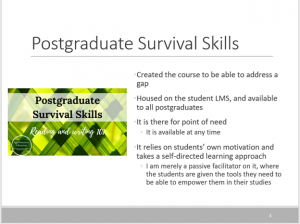 The course was created with Kathryn Wirth’s input (the Blended Learning Co-ordinator for the AgriSciences faculty) and placed on the SUNLearn postgraduate module. The point of need, standalone course covers the following areas:
The course was created with Kathryn Wirth’s input (the Blended Learning Co-ordinator for the AgriSciences faculty) and placed on the SUNLearn postgraduate module. The point of need, standalone course covers the following areas: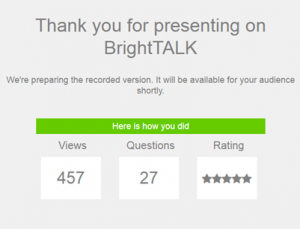 The webinar was well attended, with 457 participants, and the rating received from most participants was 5 stars. The presentation also resulted in a Library Connect blog article which can be viewed
The webinar was well attended, with 457 participants, and the rating received from most participants was 5 stars. The presentation also resulted in a Library Connect blog article which can be viewed